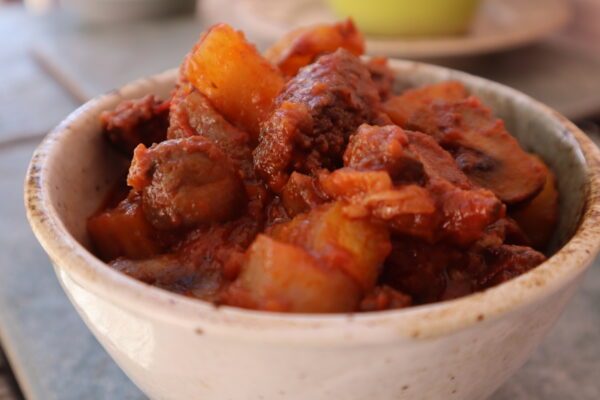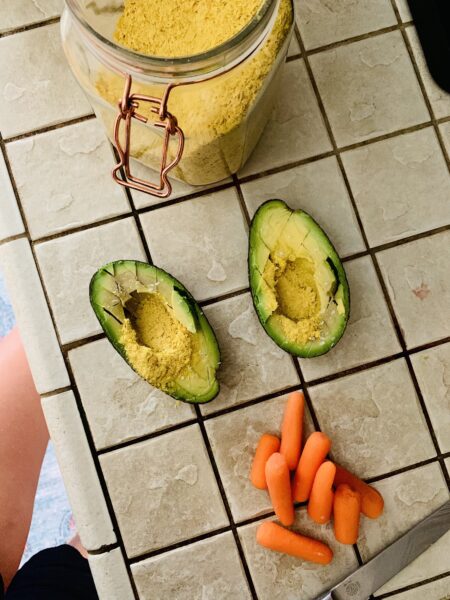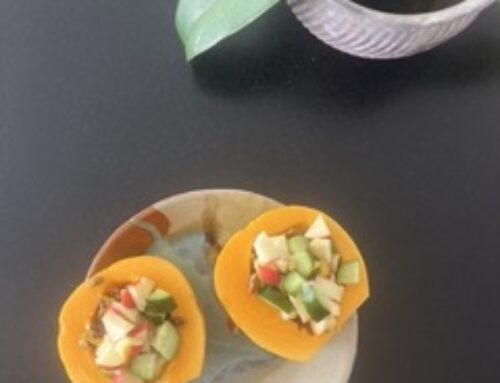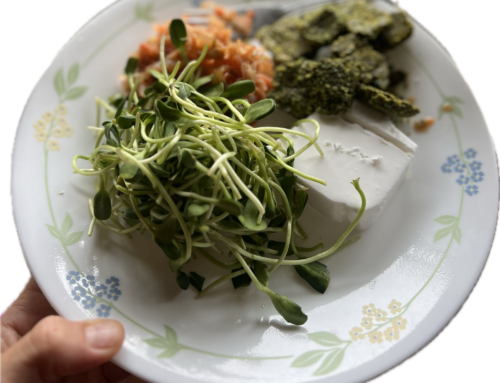These days all ways of eating fall under a basic category. Every diet that has surfaced emulates a way someone has eaten and the program they’ve designed around it – they may be a doctor or someone who has simply mastered weight loss, muscle growth, living long (or the observance of centennials such as The Blue Zones) or feeling really really good. Very few people can’t not be classified, even if they’re omnivorous. So which category do you fall under? Do you kinda hate that you fall under a category? I get that – but here’s the deal. The Latin root of diet means: the kinds of food that a person, animal, or community habitually eat. Or, from medieval Latin dieta which is a ‘day’s work, wages, etc.’ Diet simply means: how you nourish and nurture yourself.
As a diet culture dropout myself I know it’s bold to admit this but: diets do work. They just happen to work in the short term until you figure out what actually works for you in the long term – which evolves into a lifestyle. Want to know what helps you figure that out? [pause].
Dieting does.
I’m not suggesting you diet but dieting is a sure fire way to learn if there’s a better way to reside in your body. How else would you know unless you try one of the many ways diet doctors have discovered as the “key to weight loss success.” The big difference here is loss and not maintenance. You can start with mantras, affirmations and Eat, Pray, Love…it all works it’s just that changing what you eat happens to change a lot more than your body.
The shelf life of a diet is entirely dependent on what’s sustainable. This post I’m writing is for the inquisitive, curious and motivated. Not the political. I’m not here to argue, just to provide some anecdotal show/tell to something I’ve observed over the course of my life. There’s a difference between the diet you live by and the diet you subscribe to. So let’s dive in.
Diets we live by

Chicken & Vegetable Soup
I saw this ad that quickly said (before they went on to sell an app), “If you run to lose weight, you’ll gain the weight as soon as you stop running.” That hit me – or at least inspired some critical thinking. The ad wasn’t wrong but who’s to say running doesn’t invoke other healthy habits that create sustainable, lasting change. (Right?)
I wanted to take a bold stance today and outline for you the 3 main diet trends that work for weight loss (and work for the long term so long as you shape-shift them to work for you). Coming from a woman who’s dieted since she was 8 years old – I just happened to grow up in that kind of household. Very little food in the fridge. Lots of prepackaged Nutrisystem meals stored in the freezer. Lots of “Protein Power” mentality (which were the pre Adkins days) and then it all kinda went to shit from there. Bless my parents’ hearts. We were products of the 80’s & 90’s.
For ease of reading and understanding I’m putting these 3 diets into main categories and then listing the other diets that more or less fall into those ranges.
The Omnivore Diet – The Zone, South Beach, Weight Watchers, Mediterranean
The omnivorous diet works for people who can’t commit to going without most foods, granted the diet as outlined by Michael Pollen (beautifully I might add) would exclude man-made foods, lots of sugar, refined grains and packaged, processed, manufactured foods. As Pollen famously wrote, eat food, mostly plants. With the exception of points-based systems like Weight Watchers, the gist is that you’re eating this way in order to allow all foods into your lifestyle and not restrict anything but portions and quantities. This diet works for folks who are,
- disciplined
- adamant about eating all “food groups”
- want to build a healthy relationship to all foods
- may or may not want to lose weight but simply live healthier
- those who don’t have a gluten or dairy intolerance
The omnivore diet can be something to aspire to for the sheer fact that having an allowable mindset around food is better than having a restrictive one. A disallowable mindset may grow resentments and sway one from doing what’s healthy in the first place. This is entirely based on the person and what they feel comes most naturally and may take a few years of dieting to actually understand. This diet wouldn’t work for folks who,
- struggle with portion control, moderation and rationing food
- don’t mind limiting certain foods like animal protein or carbohydrates (remember: portion control)
- are willing to take a longer, slower road to weight loss
- have a gluten/dairy intolerance
An omnivorous day of eating might look like:
Breakfast: coffee or tea, pancakes, yogurt & granola or oatmeal with fruit and honey.
Lunch: Soup and Salad or Sandwich, cookie for dessert
Dinner: Stirfry with chicken or steak with rice or noodles, ice cream or sorbet for dessert.
Snacks: fruit, granola bar, protein bar, smoothie, 1/2 cupcake or 1/2 cup ice cream (because some people only eat 1/2 a cup of ice cream ::sarcasm::…if this is you, cheers to being an omnivore!)
Drinks: coffee, tea, beer, wine, cocktails – in moderation
The summary.
The omnivorous diet is excellent and may be the most true to our modern human roots IF you’re able to moderate what you eat, eat lesser amounts of ALL things and be totally okay with that.
The Keto Diet – Paleo, Whole 30, Carnivore/Ketovore
The Keto Diet is all the rave with weight loss & chock full of success stories. Plain and simple, the meatier diets work for those who feel like animal foods are an essential part of their health and wellness plan and without it feel like they’re not eating at all. Keto works for folks who want to build muscle, fix gut and microbiome issues, enjoy “the science of food,” and don’t mind counting macronutrients: mostly Fat, moderate Protein & low Carbs – on a scale like system. Keto also works for folks who can forgo carbs for fattier foods and feel just as sated. Thus Keto works for folks who:
- want to establish metabolic flexibility and

Red Wine Pot Roast
are willing to go through “Keto Flu” which typically lasts 1-3 weeks as the body shifts from burning glucose for energy (the brains preferred source of energy) to ketones. *note this is less so for the other diets that fall under this category like Paleo & Whole 30 which allow some tubers/root veggies with a higher carb count.
- if you believe that carbohydrates are non-essential
- if you wish to emulate Paleolithic days: meat, berries, tubers etc. What we naturally hunted/gathered.
- if you’re suffering from an autoimmune disorder (search Chrons Disease & all meat diets)
- if you’ve tried being Vegan or Plant Based and it didn’t work or you
- if you have diabetes, epilepsy or a genetic history of Alzheimer’s (we can talk epigenetic’s in a future post)
- if grains, pasta and starches – like potato & winter squashes matter little to your sustenance & satiety
Keto is fun and sustainable for some folks and entirely dependent on the foods you’re attached to. One of the bonuses with Keto is that it kick starts awareness of gluten consumption and the often deleterious effects of trigger foods such as sugar and allergens – this is a big one next to dairy, eggs, shellfish and nuts. So long as the diet does not concentrate on cheese, deli and cured meats, a lot of digestive relief can come from eliminating the “big ones” which Keto does. Sadly lazy or “dirty Keto” approaches may not only suggest consuming dairy but may emphasize heavy consumption of it (cheese chips and fried cheese for the sheer sake of being “low carb” – it’s a double edged sward if you ask me).
Some women find the lack of carbohydrates leads to hormonal disruption and may cause hair loss, thyroid issues and fatigue. *This was my experience. Over time on minimal carbohydrates I feel moody, my hair gets dull and my monthly cycle gets unbearable – aka PMDD and depression hit very hard. How do I now this is Keto and not just “me.” I experimented with low carb diets 3x over the course of 7 months and each time 2-3 years apart – I’m a lab rat like that. Each time, same result. Again, anecdotal but for the sake of self disclosure I think this is useful info to tuck away for the curious and I believe that’s why you’re here, no?
Keto is a matter of balancing Macros and being attuned to your body’s rhythms and possibly supplementing if need (which is likely). Common supplements include desiccated organs (offal), potassium, magnesium & digestive enzymes. This diet wouldn’t work for folks who:
- love carbs and starches like: brown rice, pasta, fruit, potatoes and winter squashes and most desserts unless they’re made almost entirely of fat and replacement sugars
- mood regulation and hormones need closer care
- ketosis is not a goal. Remember Ketosis is when the body burns ketones for energy and not glucose which is the brain’s preferred source of energy. It takes training which is why it’s called: metabolic flexibility
“Too much protein intake can lead to liver and kidney overload; the liver cannot convert nitrogen into urea fast enough and the kidney has to deal with extra urea. Too much urea results in higher demand for water, which leads to dehydration. And we all know how important it is for athletes to stay hydrated. More serious problems include hyperaminoacidemia (excess amino acid in blood), hyperammonemia (excess ammonia), hyperinsulinemia (excess insulin), calcium loss and overreaction within the immune system.” McGill.
A Keto day of eating might look something like:
Breakfast: Bulletproof coffee, Intermittent Fasting or Tea & Omelette with Goat Cheese & mushrooms
Lunch: Cold Cuts or Turkey Slices, Pickles or Sauerkraut, Olives and Broccoli with olive oil
Dinner: Pot Roast, Chicken and Vegetable Skewers, Lamb Burgers
Snacks: cheese, nuts, fat bombs, berries, pork rinds, guacamole
Drinks: coffee, tea, limited red wine or Dry Farms (lower alcohol/sugar content) or spirits mixed with sparkling water. Careful – the hangovers are REAL. Like really bad. Way worse. Due to shifting from glucose to ketones the body has a rather adverse reaction to added sugar, especially the fermented kind. Trust me here. Again, Keto, Carnivore and Meat friendly diets are helpful for those who cannot exclude meat or feel it’s inclusion is beneficial to their satiety and energy. You don’t know until you know.
The summary:
Keto has become easier and easier to follow as most restaurants and stores accommodate for this way of life. It’s pretty simple to order a burger without a bun (but also without the fries…), snack on nuts and cheese and omit fruit in lieu of deli meat, leftover steak from dinner or rotisserie chicken and salad greens. Beware, however, of overdoing fat and over consuming meat as the protein to fat ratio can get confusing. Eating more protein than the body needs happens to do this quirky thing Fat is also fat at the end of the day and eating a lot of it will inevitably lead to weight gain so it’s a balancing act. Also men and women are entirely different. If eating Paleo, the inclusion of sweet potato and root vegetables might ease that confusion and make you feel like you’re dieting less and living more but again it’s up to your body and whether or not you’re watching carbohydrates in order to shed pounds or shred in the gym. Most fruit is off the list so you can expect to eat berries but exclude bananas, dates, most melons, apples, pears….the list is long because their glycemic index is high. Sweet cravings are mitigated with sugar replacements, stevia, erythritol and allulose. It can get a little “artificial” feeling especially if you feel like you’re beating the sugar monsters down with a bat until they’re blue in the face (and you’re exhausted). Making and searching for alternatives can feel trying but not impossible. Forget about pasta. Just don’t even think about it.
The Plant Based Diet – Vegan, Fruitarian, Macrobiotic, Raw Food
Last but not least – plant foods. Veggies on veggies on fruit on veggies. I’ll be honest here. I’m biased. After a lifetime of throwing myself into the food fire and trying on ALL the diets for size, nothing tastes better than a plant based diet feels. And yes it’s a diet but let’s explore a little about why it’s more of a lifestyle from the get-g0.
Again, biased, anecdotal, self disclosure.
There’s a pretty stark difference between eating a vegan diet based on packaged, processed, Franken meat. There’s also a pretty stark difference between eating a plant based diet and eating Oreos and drinking Coke, we all know this. You can get by on a Vegan diet being negligent but this does no body good. For those who shun vegan diets (a’hem Carnivore MD and Shawn Baker…) they tend to lean on the utter extremes like Fruitarianism (eating only fruit) and pull examples from people with autoimmune disorders. They also draw from those who are uneducated and who rely on the worst of the processed worst OR who have a few “loose wires” if you catch my drift. There are plenty of nutso carnivores out there too who live extreme militant lives and choose not to poop for 3 days in a row in the name of their faith but who are the Vegans to judge right? (insert eye roll).

Tempeh Wraps with broccoli sprouts & Papaya Seed Dressing
The Vegan – plant centric diet is based on fruits, vegetables, grains, starches, nuts, seeds, legumes, beans and pulses – so long as your body tolerates them. It’s very well rounded, colorful and chock full of all things fiber which has been proven to help folks to combat inflammation, ease sore joints and clear skin (to name a few). A plant based diet works for folks who:
- love fruit and vegetables
- love bright colorful fresh food
- don’t mind omitting animal foods
- love to eat frequently and without guilt (certain foods loaded with oils, butter, sugar, eggs and dairy have a way of doing that so vegan foods taste AND feel good to eat).
A plant based diet is central to any wholesome healthy diet, no matter what you’re eating. The entirety of our vitamin, mineral, antioxidant and fiber intake comes from juicy fruits and fibrous plants as well as certain seeds like Flax and grains like Oats. The energy consumed goes directly to the brain which eats up all of the glucose and provides satiety, clear mindedness, positivity, optimism and motivation. 90% of the brains serotonin is produced in the gut which is why Food & Mood is essential to living a good life.
Some additional self disclosure to boot here: depression and low carb diets is REAL. Plant Based eating ensures that the body is fueled by whole foods that occur naturally in the environment and go straight to the brain by way of absorption in the gut.
Scientists have found meals rich in carbohydrates promote an increase in insulin production, allowing muscle cells to absorb competing amino acids. This makes it easier for tryptophan to cross the blood-brain barrier, increasing serotonin levels in the brain.10 This may explain the association between depression and carbohydrate cravings. A diet high in protein and animal foods can limit serotonin production. The Physicians Committee.
A day of plant based eating may look something like:
Breakfast: Matcha Latte, toast with nut butter & banana or a Green Drink using fresh fruits, vegetables, lemon and lots of water to blend which creates a hydrating and enlivening start to the day. Other breakfasts include oatmeal bowls with chia seed and fresh fruits, smoothie bowls and probiotic yogurts made from alternative nut milks.
Lunch: Fruits, Salads, Sprouts, Wraps, delicious dipping sauces
Dinner: Soups, Sweet Potato, stir fries with veggies and tempeh
Drinks: coffee/tea/wine/beer/cocktails…celery juice – the healthier you get the more motivating it is to reconsider how you source your energy. Plant based eating is so stimulating that you might be surprised to discover yourself nixing coffee & cocktails and going for more herbal/grassier bevy’s. I used to rely on coffee to perk me up in the morning while eating a pretty low carb diet but once I began fueling myself with more plants I felt less inclined to lean on caffeine and more inclined to lean on food.
The Summary:

Supplementing with food based additions like: Nutritional Yeast, Chia Seeds & Flaxmeal can ensure your food not only tastes great but that you have added protein, b12 and omegas fatty acids.
Eating plants can be inspiring and invoke new behavior around food. Excluding animal fats, organs and muscle meat tends to inspire rethinking a lot of food habits like mindlessly eating processed foods such as commercial dressings, condiments, crackers, chips and baked goods (muffins, cookies, cakes). It’s a kind of ripple effect. Sure there are plenty of sugar laden vegan treats on the market but over time the Plant Based lens tends to cultivate more discernment. Plant based eating can not only inspire healthier food choices but ultimately lead to weight loss AND management because the body is not deprived of essential nutrients – even the macronutrient protein. The body pools everything we eat in order to balance itself – it’s THAT intelligent – so if plant based eating compels you, consider dropping the heavy science of eating and go placidly using your intuition which gets stronger the more you learn to trust your body.
In Conclusion
- The decision is yours ultimately – you needn’t subscribe to any label however stark shifts in your eating patterns will produce the fastest results
- No healthy diet revolves around processed food, or all of one food group
- The BEST approach is the LEAST extreme for long term success.
- Weight loss is often a result of making a few simple adjustments – taken seriously and done consistently over a long period of time.
- Self awareness is the key ingredient, eat and be an observer of your choices
- Listen AND watch your body, it’s changes, your energy levels, cravings and moods
- What you eat will always matter – your relationship to food, your body and the world around you
- Look to food for satiety, energy & clarity then look to God/Gaia/Spirit for connection
Still curious? Tell me more about it at info@therapeuticeating.com or check me out on IG.
XO All.Ways,
Katie





